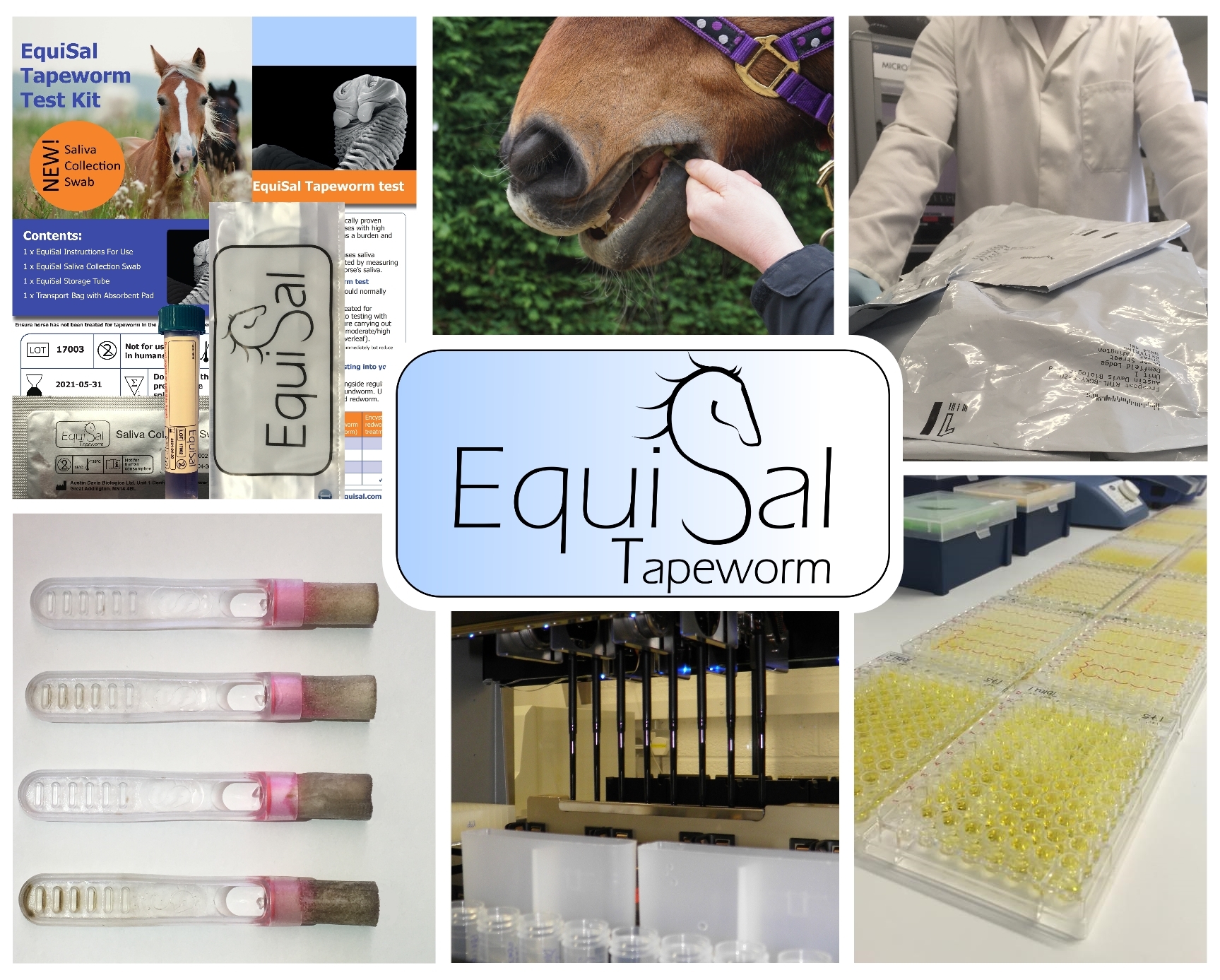Home News and Research Tapeworm control on yards and in small herds
Tapeworm control on yards and in small herds
The importance of tapeworm control on yards and in small herds
What do we know about the horse tapeworm?
Tapeworm burdens can cause various types of colic and intestinal obstruction if not managed correctly. The presence of a tapeworm burden also causes localised chronic inflammation which can lead to lesions in the intestinal wall.
The tapeworm life cycle is different to other equine worms in that it requires an intermediate host. Infected horses pass tapeworm eggs onto the pasture where they are consumed by free-living oribatid mites. The eggs develop into larvae within the mite until the mite is ingested by a grazing horse, allowing the larvae to be released into the intestines. The larvae complete their life cycle by attaching to the lining of the intestines where they develop into adult tapeworms capable of releasing eggs.
 The oribatid mites live in the grass and soil of our grasslands, but the number of infected mites depends on the level of infected horses grazing the paddocks. If there are a lot of infected horses in a paddock, then a high proportion of the oribatid mites will be infected.
The oribatid mites live in the grass and soil of our grasslands, but the number of infected mites depends on the level of infected horses grazing the paddocks. If there are a lot of infected horses in a paddock, then a high proportion of the oribatid mites will be infected.
It is especially important to manage tapeworm burdens in horses at yards and in small herds as this also minimises the number of infected mites present in the paddocks. In addition, the correct management of tapeworm infection (i.e. testing before resorting to wormers) ensures the risk of resistant tapeworms will be significantly reduced.
How can you test for tapeworm in horses?
Although tapeworm eggs can sometimes be detected in worm egg counts, this method is unreliable as the eggs are released in specialised packets rather than spread throughout the faeces. Tapeworm burdens are more accurately diagnosed using either a blood or a saliva test, which both detect tapeworm-specific antibodies present in the sample. The saliva test for detecting tapeworms in horses is run by Austin Davis Biologics – EquiSal Tapeworm.
What is the EquiSal Tapeworm test?
The EquiSal Tapeworm saliva test has been developed by experienced scientists at Austin Davis Biologics to reliably detect tapeworm burdens. It works like a blood test, but instead, uses saliva that you collect yourself. The test is scientifically proven to diagnose tapeworm burdens with high accuracy, so it tells you if your horse has a burden and whether you need to worm or not.
The scientific validation of EquiSal Tapeworm testing has been published by the peer reviewed journal, Veterinary Clinical Pathology and is endorsed by veterinary consultants at Bransby Horses, who use the test for the 400 horses in their care as part of their worm control strategy. Peer reviewed publication confirms the scientific quality and reliability of the EquiSal Tapeworm test.
To find out more, click here.
How do you introduce EquiSal Tapeworm testing into your yard or small herd's worm control programme?
It is easy to integrate an EquiSal Tapeworm test into your worm control programme – simply test every 6 months at a time when you would normally be considering routine worming for tapeworm. Your programme should also include regular worm egg counts for redworm and roundworm, and a winter worming dose for encysted redworm.
More than 40,000 horses have now been tested with EquiSal Tapeworm and only a quarter of these required worming! This level is much lower in well managed yards where on average only 15% of horses will require treating for tapeworm - and many yards have no tapeworm burdens present at all.
Tim Stockdale, leading international showjumper, tests all of his horses every six months using EquiSal Tapeworm testing. He only worms horses at his yard when they are diagnosed with a burden and the last time they were all tested, none required worming! Tim told us; “I take my horses’ welfare very seriously and this professional scientific approach to diagnosing worm burdens is the way forward. For me, using Equisal Tapeworm makes total sense.”
To find out more, click here.

What is involved with doing the test?
To test for tapeworm, all you need to do is collect saliva from your horse using the specially designed EquiSal swab and then return it to the lab using the freepost bag included with the test kit. Results are emailed with a worming recommendation. To find out more click here.
Visit our stockist page to see a list of SQP and veterinary practice stockists or visit our online shop.

